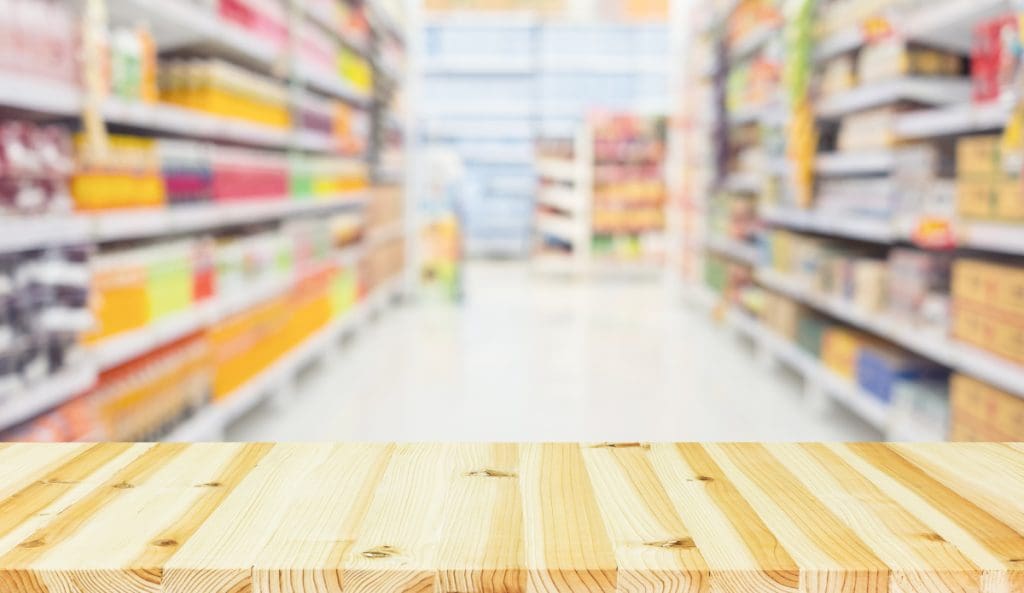As consumers tighten their belts, it’s retailers who feel the pinch. If the recession is biting into your sales, there are some things you can do to ease the pain.
While people might have a little less cash to flash in a time of inflation, there’s still money out there. There are eight things that people still buy, even when the economy is looking gloomy.
- The essentials
- Long-term goods
- Low-cost items
- Local products
- Bulk products
- Second-hand items
- Substitute products
- Long-term subscriptions
You may be able to use this information to help your ailing sales, leveraging on what people want.
The Essentials
People still need petrol, medicine, clothing and food. These are all the best sellers during periods of recession and inflation, because they are necessities. Present these attractively, using display accessories to highlight the price, making it easy for consumers to compare items and choose which is best for them.
Long-Term Purchases
It might seem a bit counter-intuitive, but some people anticipate more inflation in the future, so they make big purchases. Things like cars, furniture, and appliance sales can increase as people decide to make big-ticket purchases before more potential price increases occur.
Low-Cost Items
Because life is hard, and people aren’t going on their overseas holidays, or spending lots on their usual splurges, they might self-soothe with a bit of low-cost retail therapy. This could mean some cheer-giving fashion buys, a new video game to ease the boredom, luxe at-home coffee options to replace café-brought, or even chocolates and sweets.
As a retailer, you want to create attractive displays with touches of luxury, for a lower price. Using our hang-sell range or other display accessories, you can present products beautifully that catch the eye of people looking for a cost-effective treat.
Keeping it Local
When imported pineapples are skyrocketing in price, the classic Central Otago apple suddenly looks more appealing. Inflation affects imported products more than local ones, as there are less transport costs. Also, psychologically, people want to support their local producers rather than some international brand.
Display your local options prominently, and use ticket frames and pop clips to show people the local options. Clearly describe the origins of the product, NZ-made gets you paid.
Buying in Bulk
Buying in bulk is an economical option for long-lasting products like nuts, dried fruits, canned goods, and dry foods like flour.
The use of dump bins with multiple offers (such as three for the price of two) can help to sell products. You’re not only offering bulk buys for a special price, but the dump bins do give an illusion of finding a great deal.
Second-Hand Items
For environmental friendliness, pocket-kindness, and an all-round dose of endorphins from finding a great bargain, consumers love second hand goods. Whether it’s consignment shops for designer threads, or the local Sallies to find a second-hand cast iron Le Creuset for a cool $5, Kiwis love sniffing out a great bargain. Times of inflation just make it even more popular.
Substitute Products
Money saving cheaper alternatives are the go; whether it’s replacing meat with beans, or brand name with in-house generic product. If consumers can save $10 from their grocery shop, they’ll do it.
Offer generic products, or cheaper alternatives to the standard options. Provide giveaway recipes for plant-based food (use menu or brochure holders), or upsell a product that has re-usable packaging.
Long Term Subscriptions
When people see looming price rises (and increasing interest rates), they may try to lock down subscriptions at a lower cost. Longer term subscriptions sell better than the short-term options, at least until inflation slows down.
Retail Displays Make a Difference
Even when finances are tight, utilising your display accessories and being thoughtful about the products you promote can make a difference to your bottom line. It’s important to remember that although inflation has made goods more expensive, you can help consumers buy products that provide good value, and longevity. Contact us at Mills for all your shop display requirements
